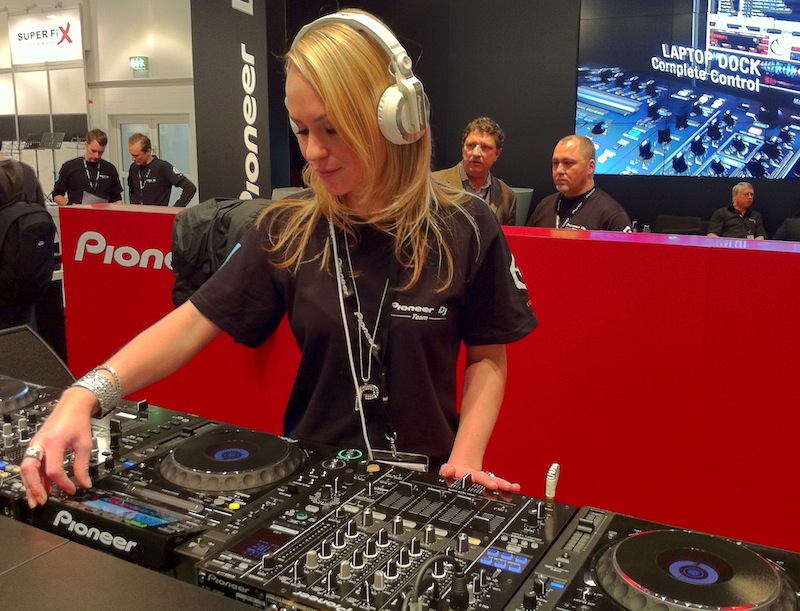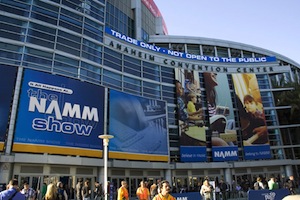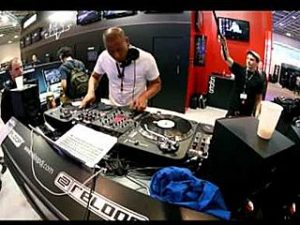
Nowadays, people are increasingly choosing to view their careers as something they need to be passionate about, rather than just a full-time job to pay the bills. You’re passionate about music, DJ gear, and technology, right? So where might you find a job that combines all of those into a career?
I’m from the United States and the environment here makes it increasingly difficult to make a career out of promotion. Just the sheer number of promotion companies in every major city across the US has made it difficult to make enough money doing promotion as a full-time gig.
The same thing goes for DJing. There has been an explosion of amateur DJs that has undoubtedly increased the supply of DJs. Throw in the fact that many DJs will now play for free at the local bar or club and you’ve got a recipe for fewer DJ gigs and lower wages. All of this is simple economics. I’m not saying that it’s impossible to start a career as a promoter, club DJ, or mobile DJ, but it’s certainly difficult considering the current environment. But what about working for a pro audio manufacturer?
Of course, we can all reel off a list of big DJing brands (look at the ads around this blog for pretty much all the big players), but how exactly do you go about finding a career with a manufacturer – the kind of career that might allows you to work in music, DJ gear, and technology while also making that steady pay packet? As someone who’s done just that, I can give you some solid pointers.
1. Develop a music-specific resume
Before you go searching for a job in pro audio, first things first: get your resume ready. You don’t know how many times I review resumes and find that they’re tailored to the person’s previous job. This tells me nothing about how their experience applies to this industry. If you don’t have hard industry experience, you may want to put in items like skills (knows Traktor Pro, Midi controller mapping, etc.), DJ experience, promotion experience, sales experience, and the list goes on.
2. It’s all about the network
You’ve heard this to the point where it’s probably a cliche, but it absolutely holds true here. The pro audio industry is a small one. Employees in the various divisions of manufacturers know each other and see each other relatively often at trade shows and industry events. While most of the manufacturers post jobs on their websites, I subscribe to the theory that resumes submitted to these postings go down a black hole.

It’s much more powerful to have someone from within the company submit your resume for a specific job. That individual submitting your resume is in some ways providing a seal of approval by passing your name along. So the key here is to network, network, network!
Be active on forums and message boards, attend industry events (more on that later), and utilise social media to seek out people who are in the industry. LinkedIn is a fantastic tool to be able to segment and filter individuals by industry or profession. LinkedIn also has a number of groups that are relevant to the industry. Social media is the wave of the networking future, so use it wisely!
3. Highlight useful skills from your current job
Besides knowing how to DJ and understanding DJ gear, its important to identify “soft” skills that will transfer into working for a pro audio manufacturer. Are you a good organiser? Are you creative? Do you have solid presentation skills?
The important thing to note here is that there are lots of skill sets that can transfer from one industry to another. If you’re working in retail for example, you probably have first-hand experience at direct sales. Manufacturers are always looking for solid salespeople who understand the needs of their customers. If you’re a DJ and have sales experience, why not look into selling DJ equipment? The best course of action is to know your strengths, determine the strengths that are relevant to the pro audio industry, and then market those strengths to your network.
4. Attend industry events
This goes hand-in-hand with building your network. The easiest and most direct way to interact people within the industry is to attend trade shows. Here you’ll get a chance to meet a lot of the key players involved in your chosen manufacturer. Typically representatives from marketing, sales and product development will be at these shows. This is a great opportunity for people because it breaks down the awkwardness around cold calling someone for an opportunity.

People pretty much understand that trade shows are there for networking and people-meeting, so it becomes much easier to walk up to a booth and introduce yourself. Examples of these shows include NAMM (US), Musikmesse (Germany), and BPM (UK).
NAMM and Musikmesse are not open to the public, but in the case of NAMM (for instance), they usually have a plethora of Sunday-only passes for manufacturers, retailers and buyers to hand out. If you know someone who is going to the show, chances are they can probably connect you up with someone for a pass.
5. Blend DJ personality with business personality
I can’t stress this point enough. I know DJs aren’t “suits”. They’re probably the exact opposite of that. On the other hand, working for a manufacturer you’re going to be in a business environment. Whether you are in sales, marketing, product design, customer service, or whatever the role may be, you’ve got to present yourself in a professional manner.
You’re going to represent the company so make sure you project the best image possible. I’ve worked with DJs who were out late the night before and definitely looked it. Let’s just say that their appearance also matched the quality of their work. Don’t be one of those DJs.
• Andrew Hong is a DJ who works as a Marketing Manager and Product Specialist at DJ Tech Pro USA.
Have you considered a career in the pro audio industry? Have you ever (or do you) work for a DJ or equipment manufacturer, or software house? Let us know your thoughts, tips and experiences in the comments…








